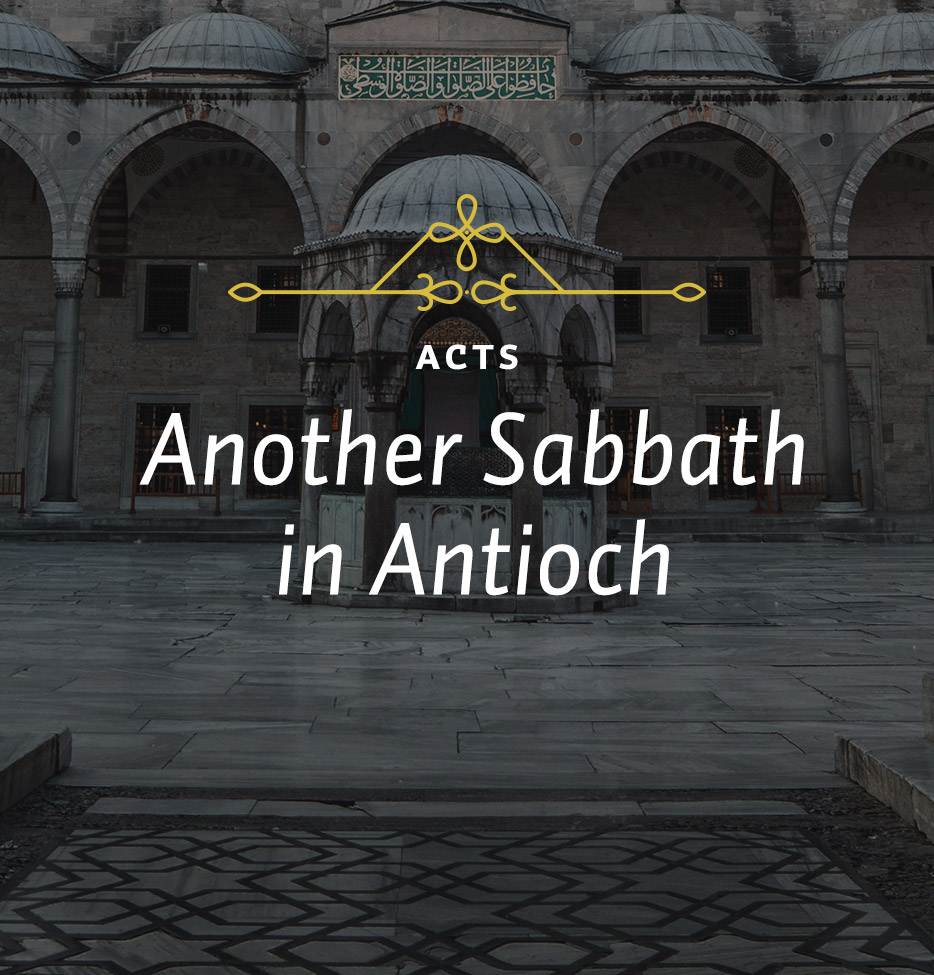How long does it take to found a church? We think we know the answer to that. We are not “superficial” people. We know that nothing that is done well is done quickly. We believe that everything should be done decently and in order—and in as long a time as possible! We are careful about where we plant a church. We do demographic studies to determine whether the area is a good area with a rising population or a bad area with a declining population. We want to know what kind of people live there and whether there is a nucleus for a church. We screen our founding pastors carefully. There are tests they must take. We want to know whether they have the abilities, talents and gifts to make the work successful. We raise money. Only when we have done all that do we have our first meeting and move forward. And even then our churches do not always move forward. We think it pays to be careful.
The reason this question was going through my mind as I read Acts 13 and discovered what Paul and Barnabas did on this occasion is that I noticed that, in this one case at least, the establishing of a church took no more than a week. The apostles moved into the area. They preached on one Sabbath. There was interest in their preaching. They were invited back. Then, on the second Sabbath, when people literally thronged the site and many believed, the church was founded. Moreover, it was a good church, for it lasted, not only through their lifetimes, but for hundreds of years. Even in these verses we read that “the word of the Lord spread through the whole region” by their witness (v. 49).
That last sentence probably embraces an indefinite period of time. Nevertheless, it is significant that what we are told about in Acts is two Sabbaths—a Sabbath of initial preaching, followed by a period of informal talking, conversing, witnessing, maybe canvassing, and then a second Sabbath. It was shortly after this second Sabbath that there was so much opposition to what was being done that Paul and Barnabas had to move on, going to Iconium, Lystra, and Derbe, which we are told about in the next chapter.
I am not necessarily recommending Paul’s procedure for ourselves. I do think it pays to plan carefully, especially when we have limited resources. But the story suggests that what God does in a situation does not necessarily depend upon us, or the length of time, or the preparation, or the study, or the expertise we may have.
When Paul began the work in Antioch he preached a sermon on the person and work of Christ preceded by a review of what God had done in the Old Testament period leading up to it. Then he cited a number of texts that were fulfilled by Christ’s ministry. This sermon would have been longer than the words actually recorded in Acts, but what Luke has given is certainly the gist of it, and it is significant that at the end of the preaching those who had heard Paul invited him to come back the next week. They could have responded negatively. Eventually there were things they did respond to negatively. Still, Paul and Barnabas were invited back, and during the week that intervened between the first Sabbath and the second, this new Gospel—the Gospel that had been preached on the first Sabbath—circulated the town.
When we come to the account beginning with verse 44, we discover that “the whole city gathered to hear the word of the Lord.”
Antioch was chiefly a Gentile city, but like many Gentile cities in those days it had a Jewish community. The Jews had a synagogue, and that is where Paul preached first. However, the Word of God spread quickly among the Gentiles. So when Paul and Barnabas came to the synagogue on the second Sabbath to preach again the place was packed by Gentiles—people who probably had not set foot inside the door of the synagogue previously.






